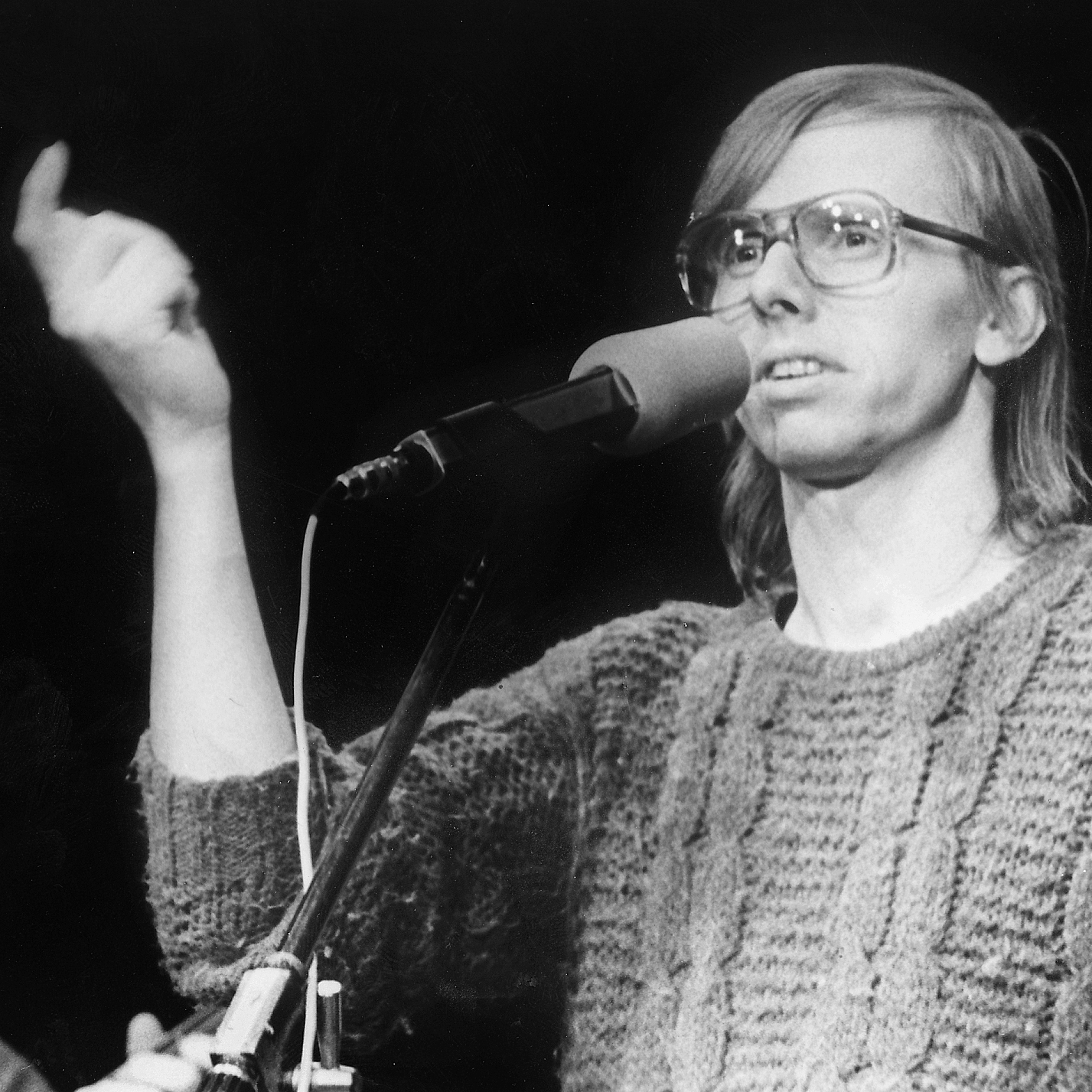Gerhard Gundermann was a dramatist, singer-songwriter and coal miner whose work is still celebrated by his ardent following of fans throughout his homeland of East Germany.
A multifaceted artist with roots in the activist musical theatres of the GDR, Gundermann was building a reputation as one of the most significant German songwriters of his era when he died unexpectedly in 1998. Combining poetic lyricism, social consciousness and insistent catchy melodies, Gundermann’s songs are a rallying cry against injustice, social inequality and environmental destruction.
Dave Robb is a Reader in Music at Queen’s University Belfast. His research has focussed on the role of musical forms of protest in German history going back to the 1848 Revolution. Completing his PhD at the University of Sheffield in 1995 he was a post-doctoral tutor at the Humboldt University in Berlin before being appointed to German Studies at Queen’s in 1999. His first book Zwei Clowns im Lande des verlorenen Lachens. Das Liedertheater Wenzel and Mensching was published in Berlin in 1998. Other books include Protest Song in East and West Germany since the 1960s (editor, 2007) and Songs for a Revolution. The 1848 Protest Song Tradition in Germany (co-author, 2020). The latter stemmed from an AHRC/DFG-funded research project with the University of Freiburg (2009-12). He has recently completed an AHRC Fellowship on ‘The Political Songs of Gerhard Gundermann in an East German and International Context’.
The aim of this website is to introduce the songs of Gerhard Gundermann to an English-speaking audience. Relatively unknown outside of East Germany, his highly original songs and fascinating story deserve to be made known to an international public.
As well as presenting recordings of Gundermann’s songs in English, this website contains links to academic work Dave is currently publishing.
This project on the East German miner and protest singer Gerhard Gundermann (1955-98) is the first examination of his previously unpublished political musicals in the GDR. This has three significant aspects:
it contributes to the ongoing reassessment of music and theatre in the GDR, a state in which all artistic expression involved a constant negotiation with state ideology and its functionaries;
it examines Gundermann’s creative appropriation of agitprop tradition in order to voice criticism of the state;
it sets Gundermann in an international context of protest singers in looking at his narrative technique and roleplay. Of particular interest is the narrative persona he developed to address the democratic deficits of the GDR and later the growing environmental threat.
THE SONGS OF GUNDERMANN
The songs I chose to translate and record come from the period 1990-98 in which Gundermann responds to themes such as society’s winners and losers, deindustrialisation, immigration, and the environment – all themes that are equally as relevant to our times today as they were back in the 1990s.
NEWS & ARTICLES
DAVE ROBB
FILLING STATION
FOR LOSERS
Songs of Gundermann
Gerhard Gundermann was an East German musician and miner from the Lusatian egion of south-east Germany. He came to the fore as a political singer during the protests leading to the fall of the Berlin Wall in 1989. He performed his two occupations side-by-side for years – he regularly went straight from shift work, operating an excavator in an open cast mine, to his gigs. He died in 1998 at the age of 43 at the height of his popularity.
25 years after his death the cultural fascination with the figure of Gundermann remains strong in East Germany. Tribute bands regularly perform his songs; the Gundermann Seilschaft e.V., an organisation based in Gundermann’s hometown of Hoyerswerda, promote musical and cultural events in his memory. He recently came to international attention with Andreas Dresen’s award-winning film Gundermann (2018).
The key to Gundermann’s continuing popularity lies – as well as in his infectious melodies – in the combination of utopianism and harsh realism in his lyrics. In the GDR he developed a new ‘heroic’ narrative to confront the rigid hierarchy of the socialist state. Later, in united Germany, he sang about the growing environmental threat. His songs express his eternal hope in humankind that is aware of its own fallibility, but also of its strength as part of the cycle of nature. In interview Gundermann famously stated: ‘I’d like to be something like a filling station for losers. I’d be happy if people said they needed bread, water and songs by Gundermann.’ His championing of the underdog continues to strike a chord with audiences living in a society that only deals in victory.
To BUY the Album
Listen to more Dave Robb on Spotify.
HAVE YOUR SAY
My name is Dave Robb. I am a Reader in Music at Queen’s University Belfast. As part of an AHRC-funded Fellowship I have written research articles and translated and recorded ten songs by the East German protest singer Gerhard Gundermann. I am using this questionnaire to measure the impact of this work. I intend to draw on this data for an Impact Case Study to go forward for the Research Excellence Framework 2029. Any responses used will be quoted anonymously. Some may appear in online material published by Queen’s University. By submitting this you are agreeing to its use as described above.
Queen’s University Belfast’s AEL Ethics committee has approved this research project.












